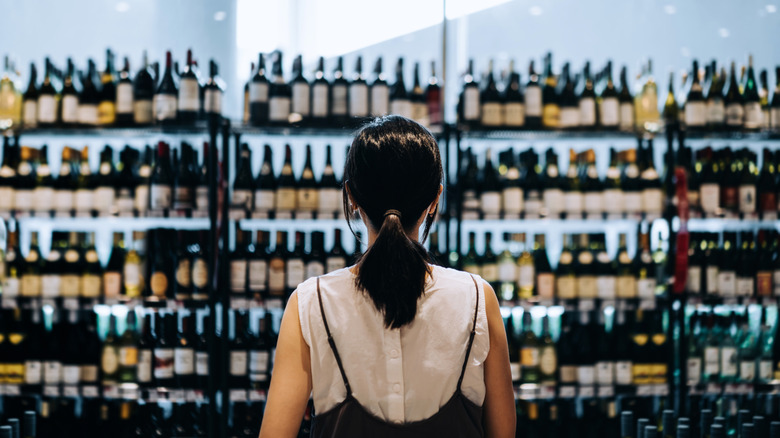Why, Exactly, Is The US Minimum Drinking Age 21?
In the United States, the national minimum legal age to drink and buy alcohol is currently 21 years old. Before then, even if it's just one day before your birthday, you can't purchase liquor, wine, beer, or any form of alcohol. It's been that way since 1984, when the National Minimum Drinking Age Act (NMDAA) went into effect. Before then, the minimum legal drinking age (MLDA) varied by state.
Part of the reason for the 21 minimum age is that, at the end of the day, alcohol is still quite literally poison, no matter how common or normalized it is. It's harmful to the body, which is especially true for younger people. Drinking at an early age is linked to higher risks of alcohol addiction and the lifelong health issues that can stem from it. In addition, teenagers' brains are still developing, and adolescence is a very important time for brain development. Teens simply don't need alcohol getting in the way of such an important time of growth.
While prior to 1984, many states did set the MLDA to 20 or 21, some lowered it to as young as 18. After the implementation of the NMDAA, however, binge drinking in those under 25 years of age dropped. So did drinking in general among 18- to 20-year-olds and even older groups of young adults. In addition, car and motor vehicle accidents decreased across the board.
Is 21 the right minimum legal drinking age?
According to the CDC, the minimum legal drinking age of 21 is effective in lowering the risk of alcohol-related issues like addiction, deaths, underage drinking, drunk driving, and birth complications. So, it's no surprise that the current MLDA has support from several organizations, including the American Academy of Pediatrics and the National Highway Traffic Safety Administration.
However, critics of the 21-year MLDA have argued that it encourages a culture of binge drinking. Since many young adults enter college around this age, they're experiencing independence for the first time, perhaps interacting with peers in dorms or apartments. For many, that means parties, which then means drinking. But not all these newly independent adults are of legal drinking age, and so they drink in secret, often at parties, with limited time and opportunity for drinking, little oversight, and lots of peer pressure to suck down as much bitter-tasting beer as possible. Add fraternity and sorority culture to that mix, and you've got a not-so-perfect series of opportunities for binge drinking.
Ultimately, alcohol consumption is a complicated issue, and the laws surrounding it are likely never going to be perfect. Certainly, discouraging teenagers from doing something may feel downright impossible. The important thing is to minimize the harm of drinking, which many still argue is achieved by the current MLDA of 21 years old. That said, you might still conclude that the law has room for improvement, such as higher taxes on alcohol or higher penalties for adults who supply minors.

